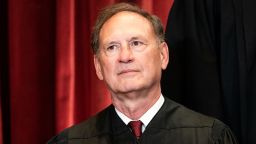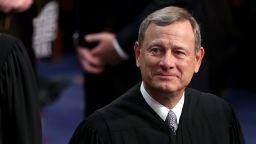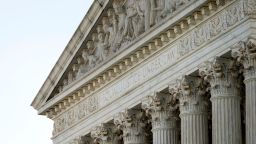The Supreme Court is holding fast to its ethics procedures in light of a new report raising questions about the extent to which colleges and universities have used campus visits by justices as an opportunity to generate donations despite a general ban on judicial fundraising.
In the report published by the Associated Press on Tuesday, the outlet also raises questions concerning Justice Sonia Sotomayor’s use of court staff to coordinate book sales.
“The Judicial Code of Ethics encourages judges to stay connected to community activities and to engage with the public, including by writing on both legal and nonlegal subjects,” Patricia McCabe, the Supreme Court’s public information officer, told the AP in a statement, adding that the justices “routinely travel and speak to university, college and law school audiences and affiliated individuals and entities.”
McCabe also said, “the Court routinely asks event organizers to confirm that an event at which a Justice will speak is not a fundraiser, and it provides a definition of ‘fundraiser’ in order to avoid misunderstandings.”
She said the court “follows up” with “event organizers to elicit further information as appropriate.”
The Supreme Court has repeatedly evaded requests in recent months to adopt a binding code of conduct, and instead has responded to allegations of ethical improprieties by releasing statements, outlining and defending their current procedures.
That has failed to satisfy critics who point to an array of media reports shining a spotlight on how the justices are leading their lives off the bench, triggering inquiries about whether they are improperly benefitting from their positions or, at the very least, creating an appearance of conflict. Some critics say the high court’s refusal to adopt a more formal code of conduct widens the gap between what’s acceptable for the justices and for other public officials.
Sen. Sheldon Whitehouse, a key Democrat on the Senate Judiciary Committee, said the AP investigation “is yet another important sign of the need for the Supreme Court across the board to clean up its act.”
The AP’s extensive investigation, which obtained tens of thousands of pages of emails and other documents through public records requests, revealed the extent to which colleges and universities have capitalized on campus visits by justices. The AP reported that schools often put justices in the room with influential donors, including from industries that have had interests before the court.
By focusing on Sotomayor, the AP also revealed how the campus visits can serve as a “convenient way” for the justice to sell their own books and raised questions about the propriety of a member of Sotomayor’s staff performing tasks related to the justice’s book ventures.
In her statement, McCabe emphasized that staff in the court’s chambers “assist the Justices in complying with judicial ethics guidance” for visits, “including guidance relating to a judges’ publications.”
“For example, judicial ethics guidance suggests that a judge may sign copies of his or her work, which may also be available for sale, but there should be no requirement or suggestion that attendees are required to purchase books in order to attend,” the statement read.
“Justice Sotomayor’s Judicial Assistant has worked with the Justice’s publisher to ensure compliance with these standards, and at no time have attendees been required to buy a book in order to attend an event,” McCabe said.
Gabe Roth, executive director of a group called Fix the Court, which advocates for more transparency at the court, said in a statement that the rules for Sotomayor appear different than rules that for other branches of government.
“A member of Congress would never be able to use her office to hawk her book,” Roth said. He noted that the AP story, unlike other recent reports focused on Justices Clarence Thomas and Samuel Alito, focuses on a liberal justice demonstrating that the court’s “ethical lapses stretch across partisan lines and that conservative and liberal justices alike need to clean up their act.”
In April, the court released a statement signed by all of the justices after Chief Justice John Roberts declined an invitation to appear at a Senate Judiciary hearing run by Democrats after ProPublica published a story that Thomas had declined to disclose he had received luxury travel on a private plane and yachts from a GOP megadonor.
Roberts said he would decline to testify, citing separation of powers concerns, but attached a Statement of Ethics Principles and Practices signed by all members of the court.
In the statement, the justices said that they consult a wide variety of authorities to address specific ethical issues, and that they follow the guidelines for all judges on financial disclosure requirements and limitations on gifts, outside earned income and honoraria.
CNN’s Tierney Sneed contributed to this report.







